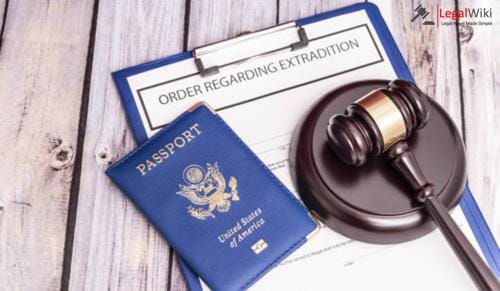Extradition Law in India: Process, Principles and Landmark Cases

Introduction
Extradition is a crucial component of international criminal law, allowing one country to formally request the surrender of an accused or convicted individual from another country. For India, extradition plays a central role in fighting transnational crimes like terrorism, financial fraud, money laundering, and cybercrime.
India has been actively using extradition to bring back fugitives involved in economic offences. However, geopolitical realities, legal challenges, and diplomatic sensitivities make the process complex and often prolonged.
What Is Extradition?
Extradition is the legal process through which a country (the requesting state) seeks the surrender of an individual from another country (the requested state) to face prosecution or serve a sentence for crimes committed within the jurisdiction of the requesting state.
Extradition is governed by bilateral treaties, multilateral conventions, and domestic laws. India follows the Extradition Act, 1962, which provides the legal framework for extradition from and to foreign states.
Key Principles of Extradition in India
- Treaty-Based or Reciprocity-Based
India can extradite individuals to countries with which it has:- A formal extradition treaty (e.g., USA, UK, UAE), or
- On the basis of mutual reciprocity, even if no treaty exists.
- Dual Criminality
The offence must be recognized as a crime in both countries. For example, if money laundering is an offence in India but not in the requested state, extradition is unlikely. - Non-Extraditable Offences
India generally does not extradite individuals:- For political offences,
- If there's a risk of death penalty or torture, or
- Where the offence is of a military nature.
- Rule of Specialty
The person extradited can only be tried for the offences for which extradition was granted.
Extradition Process in India
- Request Initiation
The concerned law enforcement agency (e.g., CBI, ED, NIA) sends an extradition request via the Ministry of External Affairs (MEA) to the foreign government. - Legal Review in Requested State
Courts in the foreign country examine whether the individual can be legally extradited under their domestic law and treaty provisions. - Surrender or Rejection
If the court permits extradition and the executive authority approves, the fugitive is handed over to Indian authorities. - Post-Extradition Trial
Once in India, the person can be tried only for the specific offences listed in the extradition order.
Recent Developments
Extradition of Nikhil Gupta from the UAE (March 2025)
In a significant victory, Indian authorities successfully extradited fugitive stockbroker Nikhil Gupta, accused of orchestrating a ₹900 crore Ponzi scheme. This marked a breakthrough under India’s treaty with the UAE and demonstrated the effectiveness of diplomatic coordination.
Interpol Red Corner Notice Reforms
Interpol has updated its notice guidelines to prevent misuse for political vendettas. Indian agencies have been advised to ensure that requests for Red Corner Notices (RCNs) comply with human rights safeguards, especially after rejections in the UK and Canada in high-profile cases.
India-UK Treaty Negotiations
After a series of high-profile denials by UK courts (like the Nirav Modi case), India and the UK are currently revising extradition terms to streamline procedures and include digital evidence admissibility protocols.
Challenges in Extradition
- Legal Hurdles
Requested states may deny extradition on grounds of human rights, political bias, or insufficient evidence. - Diplomatic Sensitivities
In cases involving political asylum or strained relations, the process is often delayed or denied altogether. - Lengthy Litigation
Extradition cases often involve multi-year court proceedings in the foreign country, especially in democracies with strong civil liberty protections.
High-Profile Extradition Cases
- Vijay Mallya (UK): Extradition approved by UK courts but delayed due to confidential asylum proceedings.
- Nirav Modi (UK): Extradition approved in principle; appeals on mental health grounds still pending.
- Ravi Pujari (Senegal): Successfully extradited; now facing trial in India.
Conclusion
Extradition remains a critical but intricate process that straddles law, diplomacy, and international cooperation. While India has made significant strides in securing extraditions of financial fugitives, the principles of due process, dual criminality, and human rights often delay enforcement. Moving forward, strengthening bilateral treaties, digital cooperation mechanisms, and evidence-sharing frameworks will be key to ensuring timely justice in cross-border offences.
To update yourself with LegalNews, visit legalwiki.co.




